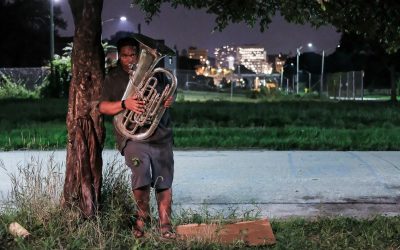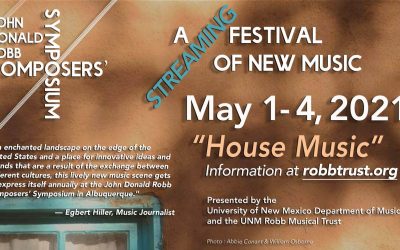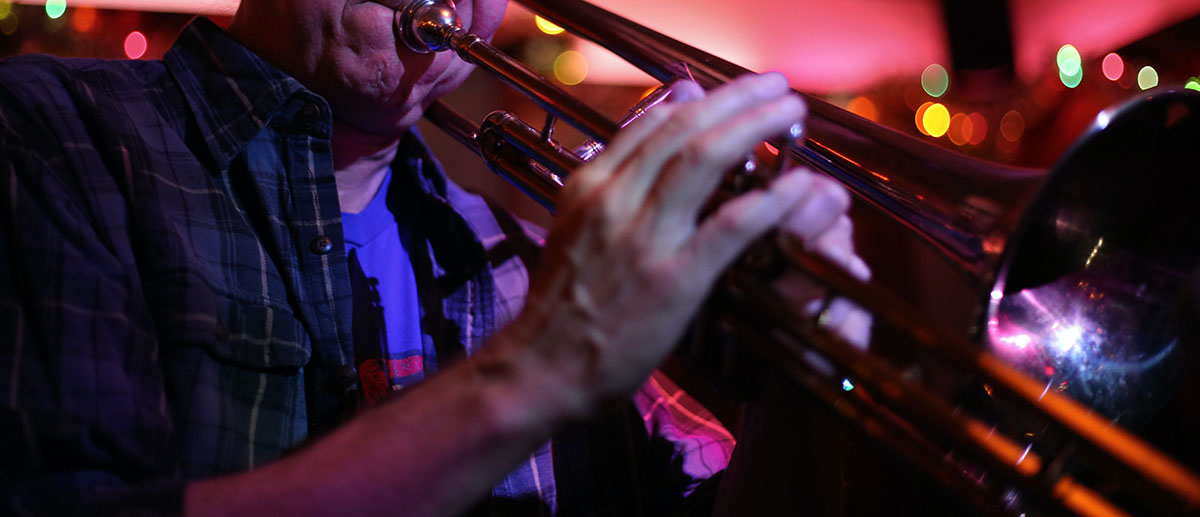On April 22nd, KUNM Music Director invited this semester’s members of the UNM Honky Tonk Ensemble, an ensemble that teaches students how to play in a band and that emphasizes the style of classic country music from the ’50s, ’60s and ’70s, to come into KUNM’s Studio A to do a studio session of songs they’ve performed over the course of the semester. Students and community members in the Ensemble performed their songs, and then did an interview, afterward, together with ensemble founder and co-facilitator, UNM Music faculty member Dr. Kristina Jacobsen. Here, they discussed their experiences learning to more deeply appreciate this genre of working-class verbal art through the performance of it, describing their experiences learning to sing, and play, in a “country” style throughout the course of the semester.” This show will be featured in hour-long broadcast on KUNM’s “Ear to the Ground” on Saturday 5/11 from 7-8 pm, and will be streamable through on their two-week archive after it airs, as well as on the KUNM Studio Sessions page. This semester’s ensemble includes: Seirra McDowell-Nardine, Nathan Lesiak, Aubrie Powell, Eric Schaller, and co-facilitator Alex McMahon. The Ensemble is open to UNM students, staff, and Albuquerque musicians, and begins again in August 2019. Please contact Kristina Jacobsen (kmj23@unm.edu) or Paula Corbin-Swalin (pcswalin@unm.edu) for more information.

‘I’m Possible’ autobiography featuring UNM music professor Dr. Richard White now on sale
A Story of Survival, a Tuba, and the Small Miracle of a Big Dream By Jayla Acosta From the streets of Baltimore, Maryland to the campus of The University of New Mexico in Albuquerque, Associate Professor, Dr. Richard White (R.A.W. Tuba) continues to make headlines....
THE JOHN DONALD ROBB COMPOSERS’ SYMPOSIUM 2021 “HOUSE MUSIC”
THE JOHN DONALD ROBB COMPOSERS’ SYMPOSIUM 2021 “HOUSE MUSIC”STREAMING FESTIVAL OF NEW MUSIC May 1 – May 45 – 8:30 PM Since 1972, the internationally renowned symposium has brought composers and musicians from around the world to UNM for a series of public concerts and...
Dr. Karl Hinterbichler receives the Ken Hanlon Award from International Trombone Association
Dr. Karl Hinterbichler receives the Ken Hanlon Award from International Trombone Association The Kenneth Hanlon Award recognizes an individual that contributes greatly to the InternationalTrombone Association (ITA) and the trombone world with a spirit of generosity...



